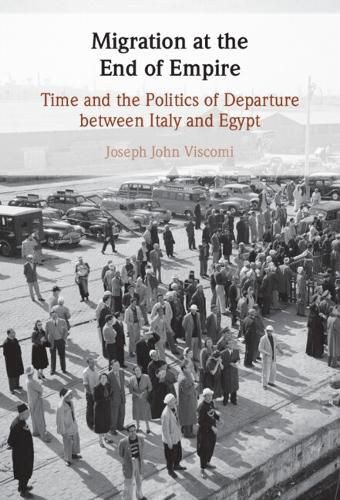Readings Newsletter
Become a Readings Member to make your shopping experience even easier.
Sign in or sign up for free!
You’re not far away from qualifying for FREE standard shipping within Australia
You’ve qualified for FREE standard shipping within Australia
The cart is loading…






How has migration shaped Mediterranean history? What role did conflicting temporalities and the politics of departure play in the age of decolonisation? Using a microhistorical approach, Migration at the End of Empire explores these questions through the experiences of over 55,000 Italian subjects in Egypt during the late-nineteenth and twentieth centuries. Before 1937, Ottoman-era legal regimes fostered the coupling of nationalism and imperialism among Italians in Egypt, particularly as the fascist government sought to revive the myth of Mare Nostrum. With decolonisation, however, Italians began abandoning Egypt en masse. By 1960, over 40,000 had deserted Egypt; some as 'emigrants', others as 'repatriates', and still others as 'national refugees'. The departed community became an emblem around which political actors in post-colonial Italy and Egypt forged new ties. These anticipated, actual, and remembered departures are at the heart of this book's ambition to rethink European and Mediterranean periodisation.
$9.00 standard shipping within Australia
FREE standard shipping within Australia for orders over $100.00
Express & International shipping calculated at checkout
How has migration shaped Mediterranean history? What role did conflicting temporalities and the politics of departure play in the age of decolonisation? Using a microhistorical approach, Migration at the End of Empire explores these questions through the experiences of over 55,000 Italian subjects in Egypt during the late-nineteenth and twentieth centuries. Before 1937, Ottoman-era legal regimes fostered the coupling of nationalism and imperialism among Italians in Egypt, particularly as the fascist government sought to revive the myth of Mare Nostrum. With decolonisation, however, Italians began abandoning Egypt en masse. By 1960, over 40,000 had deserted Egypt; some as 'emigrants', others as 'repatriates', and still others as 'national refugees'. The departed community became an emblem around which political actors in post-colonial Italy and Egypt forged new ties. These anticipated, actual, and remembered departures are at the heart of this book's ambition to rethink European and Mediterranean periodisation.